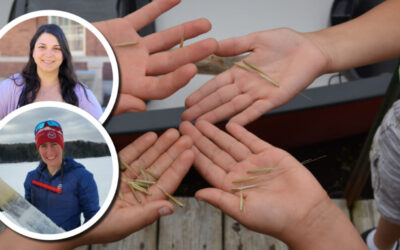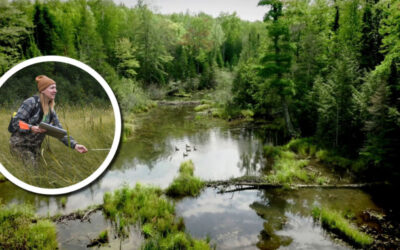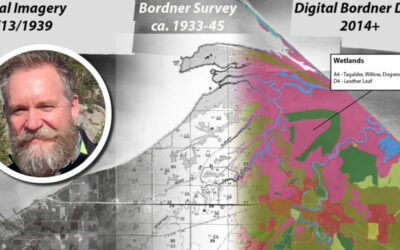Wetland Coffee Break
The Wetland Coffee Break series helps keep our community of wetland lovers connected and learning about wetlands throughout the year, from anywhere! Bring your coffee and learn about wetlands, the plants and animals that call them home, and the many natural benefits they provide to our communities. Sessions are held on Zoom and feature time for audience Q&A.
See below for a list of upcoming presentations and to register. Once you register, you’ll receive an automatic email including the URL link and password you’ll need to access the meeting. We record and post each presentation so you can watch any that you missed live. You’ll find links to these recordings below, and you can also find them on our Facebook page.
We are grateful to all of the presenters for sharing their knowledge and expertise and to everyone interested in learning more about wetlands! If you are interested in giving a Wetland Coffee Break presentation, or if you have a wetland topic you’d like to see covered, please contact Katie.Beilfuss@wisconsinwetlands.org.
We are now able to provide attendance verification to Wetland Coffee Break audience members who attend the live sessions and request this service. We created this mechanism in response to requests from members of the Wetland Coffee Break audience who would like to apply their Wetland Coffee Break learning to their continuing education or certification requirements. Learn more about how to receive attendance verification here.

Register for a Wetland Coffee Break
The Wetland Coffee Break is on winter break, back in 2026. Check back in later this winter for upcoming programs, and subscribe to our every-other-week Wetland News email to get our calendar of events, which includes Wetland Coffee Break episoded. Meanwhile, consider attending the 2026 Wetland Science Conference, happening Feb. 24-26 in Baraboo/Wisconsin Dells, for more great information about wetlands.
Watch previous presentations
Click “Older Entries” below to see more past presentations, or view our Google Sheet index of past presentations here.
Wetland Coffee Break: Dibaginjigaadeg Anishinaabe Ezhitwaad: A tribal climate adaptation menu for indigenous-led adaptation planning
Learn about the Tribal Adaptation Menu which provides a framework to integrate indigenous and traditional knowledge, culture, language, and history into the climate adaptation planning process.
Wetland Coffee Break: Wetland monitoring and protection on the Red Cliff reservation
Take a tour of the wetlands in Red Cliff and learn about efforts to monitor and manage the Tribe’s wetlands.
Wetland Coffee Break: Implications of the Sackett decision for Wisconsin: Early takes from the front lines
Watch the recording of our special one-hour edition of the Wetland Coffee Break series to explore the ecological, legal, and political implications for Wisconsin wetlands of the U.S. Supreme Court’s decision in Sackett vs EPA.
Wetland Coffee Break: Discovering historic Wisconsin geospatial data
A photo of speaker Howard Veregin over a map that shows one landscape with several different maps. Starting on the right with 1939 aerial imagery, then a survey map (the Bordner Survey) ca. 1933-1945, then into the colorful Digital Bordner Data from 2014 and onward with ‘wetlands’ pointed out.
Wetland Coffee Break: How you can help gather better information about rainfall and runoff through the “CoCoRaHS” program
Having accurate and local rainfall data impacts forecast accuracy and issue and timely and accurate flood watches and warnings. Local rainfall data also improves the modeling that communities use in their emergency management and restoration planning.
Wetland Coffee Break: The Wisconsin Frog & Toad Survey
Join DNR conservation biologist Andrew Badje to learn more about how you can become a “frogger” by lending your ears to monitor and help conserve frogs and toads in all corners of Wisconsin.






